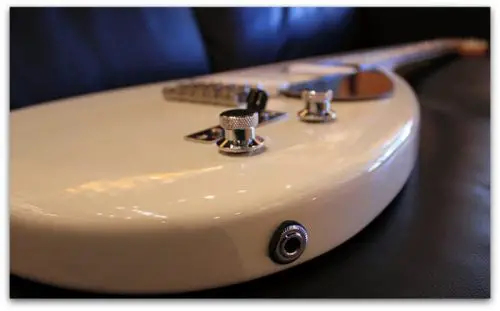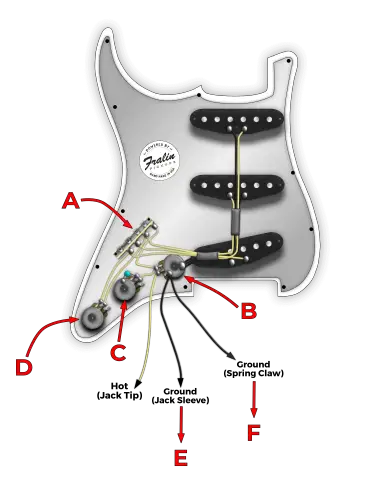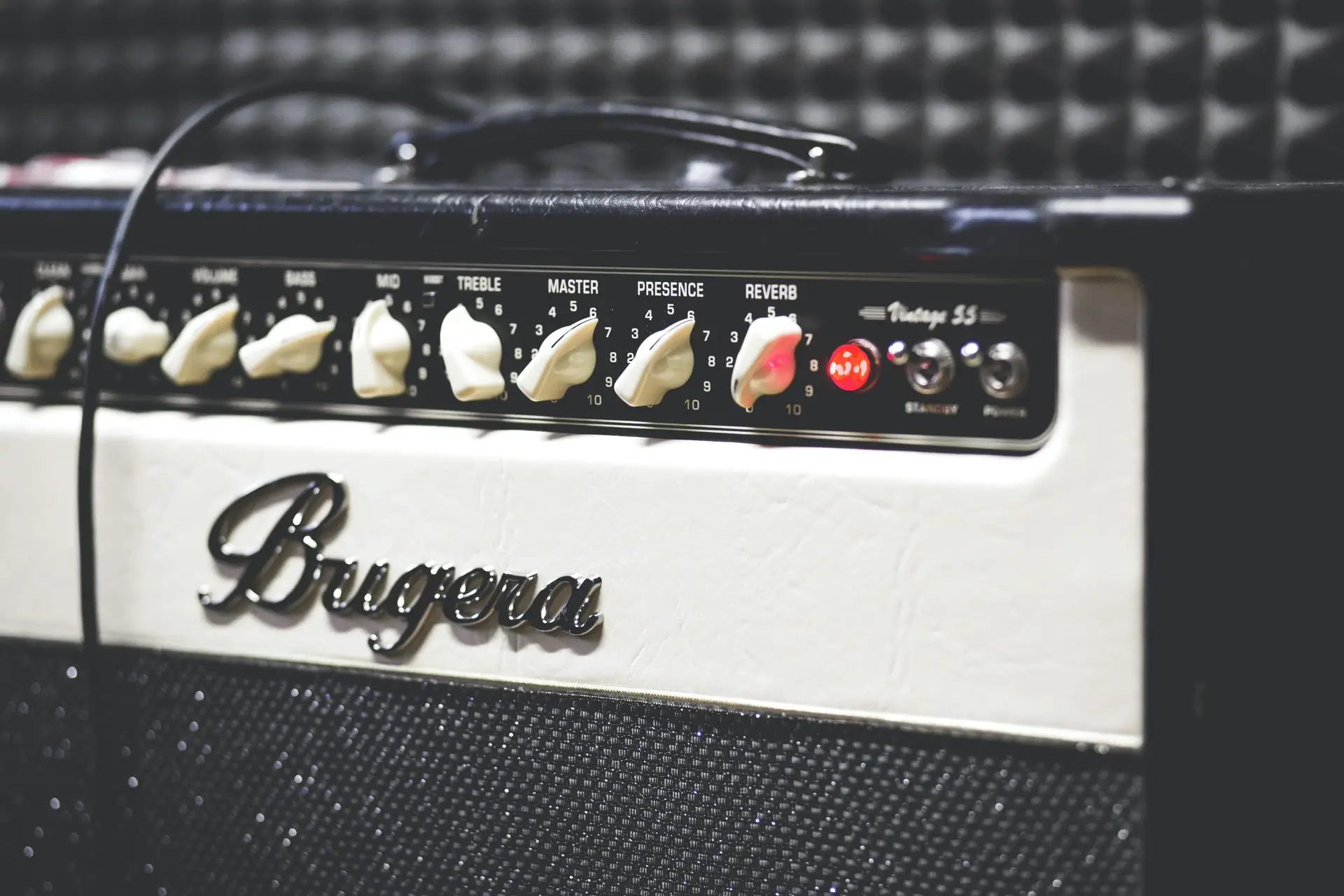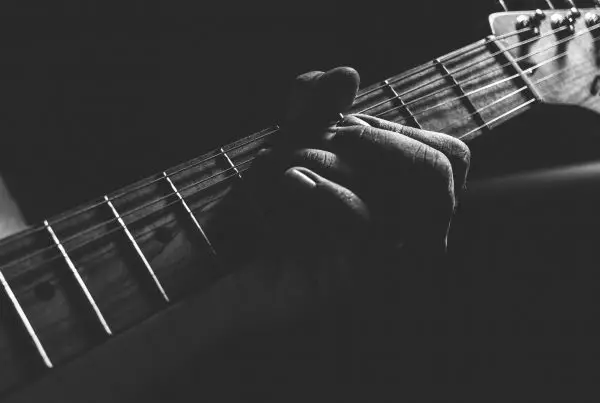A guitar amp commonly cuts out due to faulty cables, audio sockets, loose ground wire. incompatible impedance or cheap speakers that cannot handle high voltage. It is even important to identify the cause before trying to fix amp cutting out.
Just like you, when I have used a guitar amp, I have faced many issues with my guitar amp from time to time.
After a long experience, I have got some of the causes behind guitar amp cutting out.
In this article, I am going to discuss the causes of guitar amp cutting out and how you can fix it or prevent it from damage. We will cover following content:
- 7 reasons why your amp could be cutting out
- Why does my amp fade in and out?
- How do you fix a guitar amplifier cut out?
- How to prevent guitar amp from cutting out issues?
7 Reasons Why Your Amp Could Be Cutting Out
An amp that’s cutting out is most likely caused by faulty cables or audio jacks. The easiest fix is to replace your guitar cable or simply make sure the audio jack is connected firmly into your guitar and amp sockets.
Here are 7 main reasons why your amp may be cutting out:
- Loose cable connection. Make sure you connect your cables firmly. In most amps and guitars, you should hear a popping sound when the cable connects firmly into the audio sockets. Loose cable is the most common reason for amp cutting out.
- Faulty cable. If the cable is tight and your amp is still cutting out, then consider replacing the cable. But before you replace the cable, make sure it’s indeed faulty by connecting it out through another amp – maybe a friend’s or even a store’s amp.
- Faulty audio socket. Faulty audio socket is when the input jack on your guitar or amp is faulty. You can test this out by connecting a new and separate cable. If the amp still cuts out, it’s most probably not the cable but the socket.
- Faulty solder joints. If the source of amp cutting out is not the cable or socket, then it’s most likely the amp’s circuit board. This is hard to fix and you will most likely need to visit an electronic store. Once you are sure that the source of amp cutting out is not the cable or audio socket, then a faulty circuit is the next most likely candidate.
- Loose grounding wire. Loose ground wire prevents electricity from flowing out of the amp (after it’s being used for power). This could cause voltage overload and cause the failsafe in your amp to trip and cut out the amp. Ground wires are found inside the amp – you need to open up the amp to fix it.
- Incompatible impedance. If you are using independent amp and speakers, then you need to make sure the impedance rating of both the amp and speaker matches. Using a low impedance speaker on high impedance amp can cause cutting out (and vice versa)
- Poor quality speakers. Cheaper speakers that cannot handle high voltage can also cut out when driven at high volume. This is most common on cheap brandless amps / speakers. If your amp is from a brand name like marshall, vox or orange – then this shouldn’t be the case.
An amp that only cuts out at high volume is most likely caused by an incompatible impedance rating, faulty cable, loose ground wire or a poor speaker that cannot handle high voltage – this is most common on cheaper amps.
If your amp is only cutting out at a high volume, it’s most likely caused by the amp’s inability to handle high voltage.
I personally had this issue – my amp would start cutting out when playing high volume / gain. I tried many fixes but found out that my amp was equipped with cheap speakers that cannot handle higher voltage (it was my first ever amp).
I hope the 7 reasons above are useful to identify your issues.

Faulty guitar socket could cause amp to cut out
Why Does My Amp Fade In and out?
Guitar amp that fades in and out due to some issues in the power tube. It can also occur due to an awful socket.
Sometimes, even after changing power tubes, the amp still fades. It may be a terrible plate or cathode capacitor that is causing the trouble. Even tubes overheating can be a reason behind sound fading.
Power tubes, also called aka output tubes, preamp your dialed signal and amplify them into speakers. If you hear that your guitar amp fades in and out randomly, you should go to check power tubes first.
You can identify that the problem is in your power tube by a symptom. The power tubes turn to a cherry red glow. The only option you are left with is to change power tubes. Because most manufacturers made it with an average life of 1000 to 5000 hours usage, they had to be replaced at some time. Sometimes tubes had blown out before expiry. We cannot be sure about it.
Sometimes, overheating can also be a problem. But most guitarists found that amp tubes are always heating and you cannot make an idea about its overheating. If it is so, you can put a fan on their amp open back.
If your tubes are well, then it must be a nasty plate or cathode capacitors causing amps to fade in and out. Cathode Capacitor is mainly responsible for the gain, noise, and frequency response. If it damages, you will lose amp noise and gain.

Loose grounding cable can cause amp to cut out
How Do You Fix a Guitar Amplifier Cutting Out
You can fix the guitar amplifier cut out by repairing its audio jack. The audio jack is the connection between your amplifier and guitar, if it turns bad, you will face the problem where the guitar amplifier is cutting out. You should repair or replace the audio jack.
You can identify that your audio jack is damaged by the noise of humming, crackling, buzzing, and no voice from a guitar. On the appearance of such symptoms, you will move to fix your audio jack.
I have a piece of good news for you that you can fix the audio jack on your own. Asking how?
You simply have to remove solder and wires from the audio jack. Clean up the input jack as much as you can. The cables should be cleaned too. Install good connections between wires with solder. It can not be, so let it cool and then set.
If you find any hot grounded wire disconnected, Cut the wire semi-centimeter from the back, and cover the protection. Next, you have to insert the open end of the wire into the terminal of the input jack. To complete the connection, you will put a dot solder at the cap of the internal jack’s terminal, and here we go, a perfect amplifier.
Don’t worry about the reason behind the audio jack problem. There’s no particular reason behind its failure. The audio jack usually wears out with time. The dirt and oxidations in the internal jack cause lag in the amplifier which should be settled on time.
The only possible solution which I recommend is regular cleaning of the audio jack. This will help you to prevent amplifier cutting off. I also clean up cables and wires to make my amplifier boost. There’s no need to panic because jack fixing is a handy process that you can do in a few minutes.
If you are a guitar player having some dynamic mechanical skills, you can fix the jack by yourself. If somebody finds one illegible, he or she must prefer to get technical services for jack fixing because the most complicated step is to make a clean solder connection.
If you notice a broken jack, you will definitely have to replace it with a new one or get technician services to fix the broken jack.
How To Prevent Guitar Amp From Cutting Out
You can prevent your amp from cutting out issues by storing it in a guitar case and leaving it in a dry place.
If you decide to leave your guitar for a long time, I suggest not leaving it openly. You must close it in a case or store it at a dry location because the guitar amplifier is largely affected by temperature. It will prevent your guitar amp from cutting out issues.
I always recommend you to keep your guitar in a “guitar case” rather than openly. This practice will prevent your input jack and amplifier from dust and oxidants. It is necessary to keep care of the internal jack otherwise your amp will start humming while playing.
Conclusion
I hope that this post helps you in getting problems and preventing your guitar amp. I want to add more. I will be glad if you find it helpful.
As we have discussed typical concerns and solutions. If these are not, your amplifier must have an electronic issue. You should contact an electronics professional.






